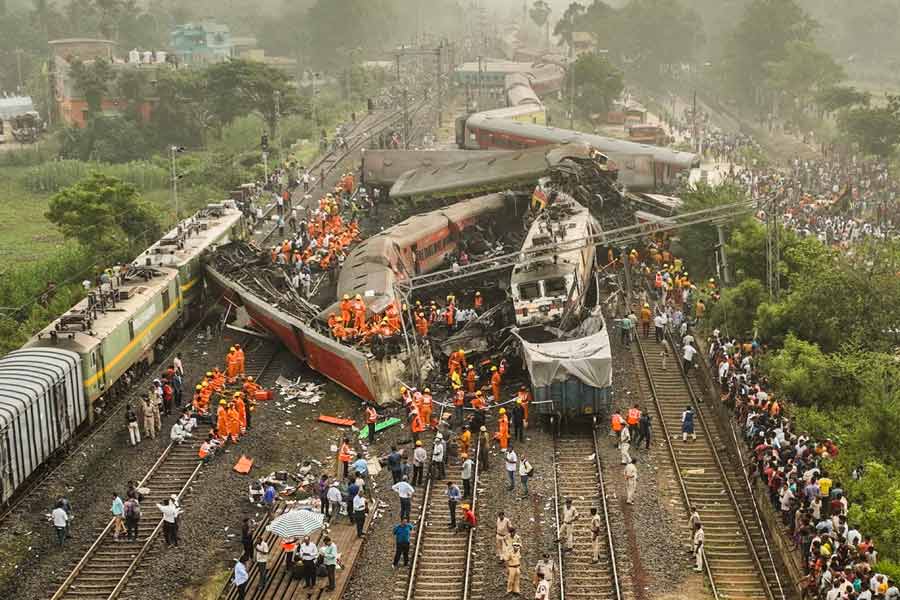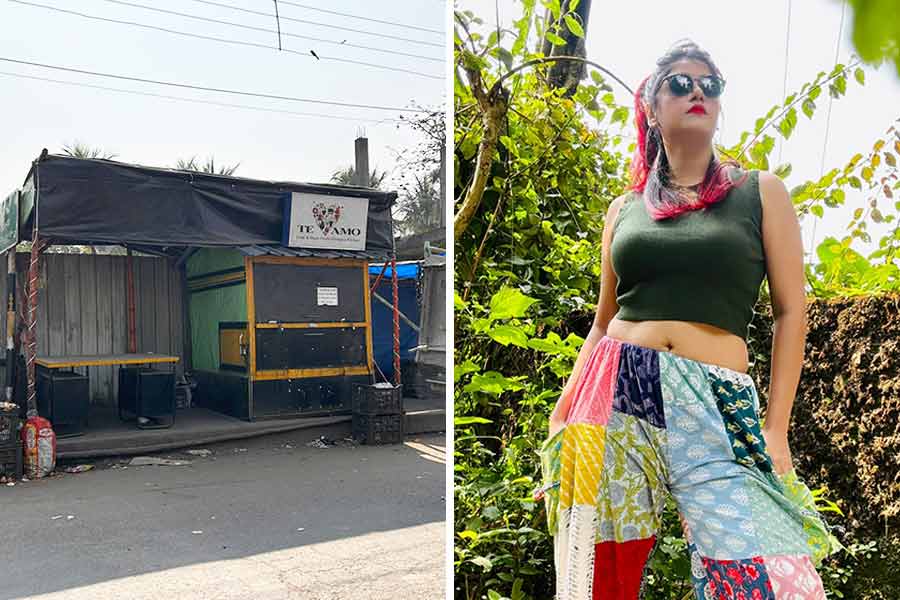The CBI on Friday took into custody three railway personnel in connection with the June 2 Balasore train accident which claimed 293 lives, making the first arrests in the case, officials said.
All the three personnel are from the signalling department and posted in Balasore district of Odisha, they said. The probe agency apprehended Senior Section Engineer (signal) (in-charge) Arun Kumar Mahanta posted in Balasore, Senior Section Engineer (Signal) Mohammed Amir Khan posted at Soro near Balasore, and technician Pappu Kumar posted at Balasore.
The trio has been questioned several times since the Central Bureau of Investigation (CBI) took over the case on June 6, they said.
The personnel have been held for their involvement in crimes under IPC sections 304 (culpable homicide not amounting to murder), 201 (destruction of evidence) and Section 153 of the Railways Act, they said.
The central probe agency had taken over the investigation from the Odisha police, which had not invoked section 304 of IPC; instead it had included 304-A (criminal negligence resulting in death), officials said, adding that the maximum punishment under IPC section 304 can extend up to ten years, while for 304-A it is two years.
"The CBI today arrested then SSE (Signal) Balasore, then SSE (Signal) Soro and then technician Balasore under IPC sections 304 and 201 and section 153 of the Railways Act, 1989, in an ongoing investigation of the case related to the train mishap at Bahanagar Bazar Railway Station (BNBR), Balasore, Odisha," CBI spokesman R C Joshi said.
The agency will now produce the arrested before a special magistrate on Saturday to seek their police custody following which their custodial interrogation will begin. The CBI will also have to file a charge sheet within 90 days else the arrested personnel will become eligible for default bail.
The accident took place near the Bahanaga Bazar station in Balasore in which 293 people were killed -- 287 died on the spot or were brought dead to hospital, while six succumbed to injuries during treatment.
The accident involved three trains, namely, the Shalimar-Chennai Coromandel Express, Bengaluru-Howrah Superfast Express and a stationary goods train.
According to CBI, Mahanta was reportedly part of the initial probe carried out by the national transporter in which he is understood to have denied any failure in the signalling department with regard to the accident.
A high-level railway inquiry had found "wrong signalling" to be the main reason for the accident and flagged "lapses at multiple levels" in the signalling and telecommunication (S&T) department, but indicated the tragedy could have been averted if past red flags were reported.
The independent inquiry report submitted by the Commission of Railway Safety (CRS) to the railway board said notwithstanding the lapses in signalling work, remedial actions could have been taken by S&T staff if "repeated unusual behaviour" of switches connecting two parallel tracks were reported to them by the station manager of Bahanaga Bazar, the spot of the accident.
The report also suggested that non-supply of station-specific approved circuit diagram for the works to replace the electric lifting barrier at level crossing gate 94 at the Bahanaga Bazar station was a "wrong step that led to wrong wiring".
It said a team of field supervisors modified the wiring diagram and failed to replicate it.
The report also said there was a similar incident on May 16, 2022 at Bankranayabaz station in the Kharagpur Division of South Eastern Railway on account of wrong wiring and cable fault.
"Had corrective measures been taken, after this incident, to address the issue of wrong wiring, the accident at BNBR would not have taken place," it added.
Except for the headline, this story has not been edited by The Telegraph Online staff and has been published from a syndicated feed.











